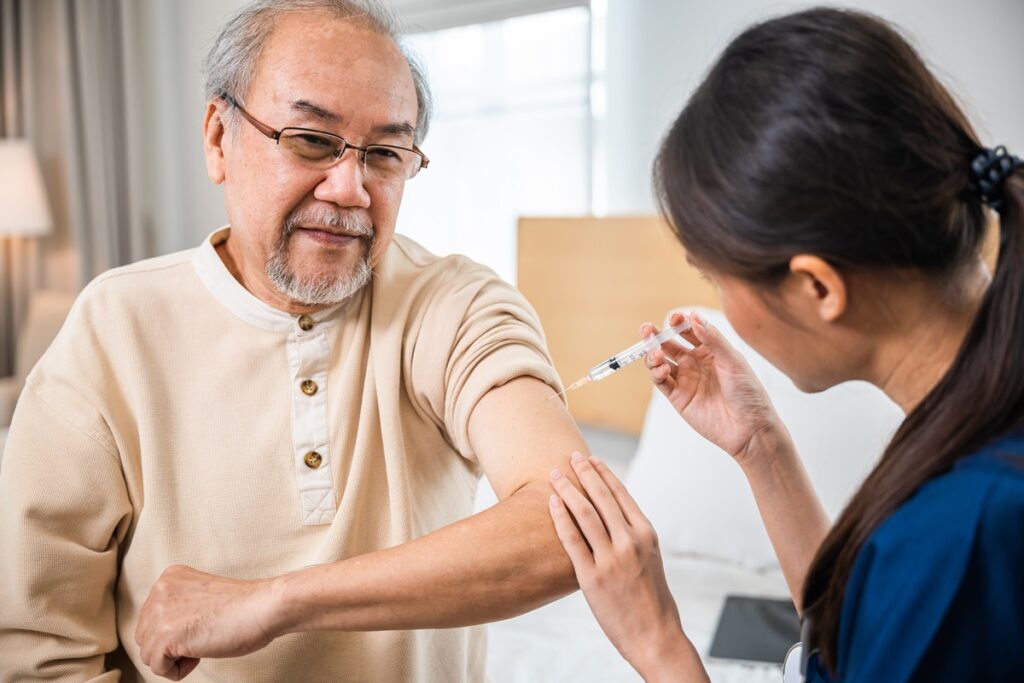By Pat James
Is this the year you’re going to go through the whole winter without catching a “bug” and suffering the nasty consequences? Now that virus season is under way, remaining healthy is a priority.

There’s good reason: Older people are mor apt to get really sick. The human immune system gets weaker with age, so elders aren’t as able to fight off infections as their 30-something neighbours. At the same time, members of the “mature years” club are at higher risk of complications and serious illness, especially if they’re already dealing with a chronic condition or compromised immune system.
“Immunization is the strongest defense against preventable diseases,” notes Dr. Anne Pham-Huy of Immunize Canada, immunize.ca. “It is more important than ever to keep your, and your family’s, immunizations up to date.”
This is a message that’s reiterated across the country, from both federal and provincial governments and public health units. And if you’re skittish about vaccines because of tales you’ve read on Facebook or X, you can get the facts from long-established, credible sources. For instance, the Public Health Agency of Canada provides a downloadable, 32-document called An Adult’s Guide to Vaccination. Find it at canada.ca.
If you haven’t yet gotten your annual flu shot and an updated COVID-19 booster, now’s the time. It is perfectly safe to receive both the COVID-19 vaccine and flu vaccine at the same time, so you don’t need to do two trips.
Besides that, there are other practical measures you can adopt to guard against illness. These tips from the Ottawa Health Unit are timely reminders:
-Stay home when sick until you are fever-free (without using fever-reducing medication and your symptoms have been improving for 24 hours or 48 hours for vomiting/diarrhea).
-Wash your hands (or use hand sanitizer) often and avoid touching your eyes, nose or mouth with unwashed hands.
-Cover your mouth and nose when you cough or sneeze.
-Disinfect high-touch surfaces in your home and workplace.
-Avoid visiting people at high-risk of severe illness when you are sick (including people living in long-term care, retirement homes or in hospital).
Wear a mask:
-To protect yourself from viral respiratory illnesses.
-To protect others at higher risk of severe respiratory illness.
-When you’re recovering from illness.
Get the latest details at OttawaPublicHealth.ca/RespVirus and OttawaPublicHealth.ca/VirusReport.






